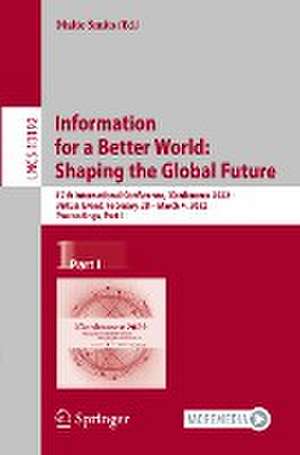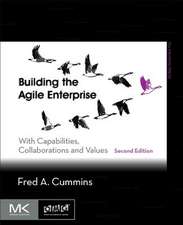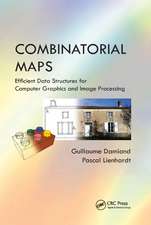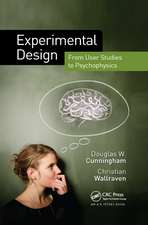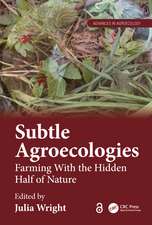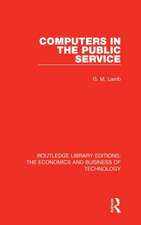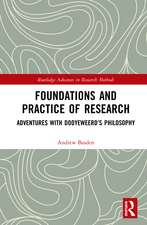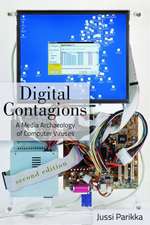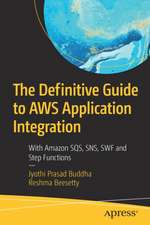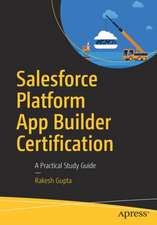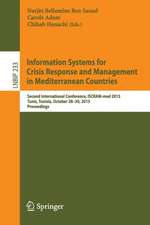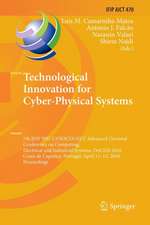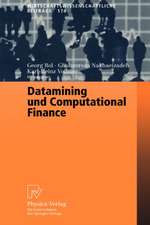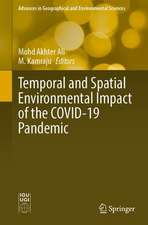Information for a Better World: Shaping the Global Future: 17th International Conference, iConference 2022, Virtual Event, February 28 – March 4, 2022, Proceedings, Part I: Lecture Notes in Computer Science, cartea 13192
Editat de Malte Smitsen Limba Engleză Paperback – 23 feb 2022
The 32 full papers and the 29 short papers presented in this volume were carefully reviewed and selected from 167 submissions. They cover topics such as: Library and Information Science; Information Governance and Ethics; Data Science; Human-Computer Interaction and Technology¸ Information Behaviour and Retrieval¸ Communities and Media¸ Health Informatics.
| Toate formatele și edițiile | Preț | Express |
|---|---|---|
| Paperback (2) | 507.63 lei 6-8 săpt. | |
| Springer International Publishing – 23 feb 2022 | 507.63 lei 6-8 săpt. | |
| Springer International Publishing – 23 feb 2022 | 541.86 lei 6-8 săpt. |
Din seria Lecture Notes in Computer Science
- 20%
 Preț: 1061.55 lei
Preț: 1061.55 lei - 20%
 Preț: 307.71 lei
Preț: 307.71 lei - 20%
 Preț: 438.69 lei
Preț: 438.69 lei - 20%
 Preț: 579.30 lei
Preț: 579.30 lei -
 Preț: 410.88 lei
Preț: 410.88 lei - 17%
 Preț: 427.22 lei
Preț: 427.22 lei - 20%
 Preț: 596.46 lei
Preț: 596.46 lei - 15%
 Preț: 448.04 lei
Preț: 448.04 lei - 20%
 Preț: 353.50 lei
Preț: 353.50 lei -
 Preț: 389.49 lei
Preț: 389.49 lei - 20%
 Preț: 309.90 lei
Preț: 309.90 lei - 20%
 Preț: 645.28 lei
Preț: 645.28 lei - 20%
 Preț: 763.23 lei
Preț: 763.23 lei - 15%
 Preț: 580.46 lei
Preț: 580.46 lei - 20%
 Preț: 310.28 lei
Preț: 310.28 lei - 20%
 Preț: 655.02 lei
Preț: 655.02 lei - 20%
 Preț: 1183.14 lei
Preț: 1183.14 lei - 20%
 Preț: 340.32 lei
Preț: 340.32 lei -
 Preț: 449.57 lei
Preț: 449.57 lei - 20%
 Preț: 591.51 lei
Preț: 591.51 lei - 18%
 Preț: 938.83 lei
Preț: 938.83 lei - 20%
 Preț: 337.00 lei
Preț: 337.00 lei - 20%
 Preț: 649.50 lei
Preț: 649.50 lei - 20%
 Preț: 607.40 lei
Preț: 607.40 lei - 20%
 Preț: 1414.79 lei
Preț: 1414.79 lei - 20%
 Preț: 1024.44 lei
Preț: 1024.44 lei - 20%
 Preț: 583.40 lei
Preț: 583.40 lei - 20%
 Preț: 453.32 lei
Preț: 453.32 lei - 20%
 Preț: 575.49 lei
Preț: 575.49 lei - 20%
 Preț: 1075.26 lei
Preț: 1075.26 lei - 20%
 Preț: 585.88 lei
Preț: 585.88 lei - 20%
 Preț: 825.93 lei
Preț: 825.93 lei - 17%
 Preț: 360.20 lei
Preț: 360.20 lei - 20%
 Preț: 763.23 lei
Preț: 763.23 lei - 20%
 Preț: 340.32 lei
Preț: 340.32 lei - 20%
 Preț: 504.58 lei
Preț: 504.58 lei - 20%
 Preț: 369.13 lei
Preț: 369.13 lei - 20%
 Preț: 580.93 lei
Preț: 580.93 lei - 20%
 Preț: 343.62 lei
Preț: 343.62 lei - 20%
 Preț: 350.21 lei
Preț: 350.21 lei - 20%
 Preț: 583.40 lei
Preț: 583.40 lei - 20%
 Preț: 583.40 lei
Preț: 583.40 lei - 15%
 Preț: 438.59 lei
Preț: 438.59 lei - 20%
 Preț: 341.95 lei
Preț: 341.95 lei - 20%
 Preț: 238.01 lei
Preț: 238.01 lei - 20%
 Preț: 538.30 lei
Preț: 538.30 lei
Preț: 541.86 lei
Preț vechi: 677.33 lei
-20% Nou
Puncte Express: 813
Preț estimativ în valută:
103.70€ • 107.86$ • 85.61£
103.70€ • 107.86$ • 85.61£
Carte tipărită la comandă
Livrare economică 14-28 aprilie
Preluare comenzi: 021 569.72.76
Specificații
ISBN-13: 9783030969561
ISBN-10: 3030969568
Pagini: 482
Ilustrații: XIX, 482 p. 82 illus., 54 illus. in color.
Dimensiuni: 155 x 235 mm
Greutate: 0.7 kg
Ediția:1st ed. 2022
Editura: Springer International Publishing
Colecția Springer
Seriile Lecture Notes in Computer Science, Information Systems and Applications, incl. Internet/Web, and HCI
Locul publicării:Cham, Switzerland
ISBN-10: 3030969568
Pagini: 482
Ilustrații: XIX, 482 p. 82 illus., 54 illus. in color.
Dimensiuni: 155 x 235 mm
Greutate: 0.7 kg
Ediția:1st ed. 2022
Editura: Springer International Publishing
Colecția Springer
Seriile Lecture Notes in Computer Science, Information Systems and Applications, incl. Internet/Web, and HCI
Locul publicării:Cham, Switzerland
Cuprins
Bibliometric Analysis and Data Visualization of Archival Science Journal Literature (1971-2020) .-Analysis of the Dynamics among State Libraries, Local Libraries, and Citizens in the United States.- Controversial ‘Black Legend’ concept as misinformation or disinformation related to history: where do we go from here in 21st century information field?.- The Rural Information Penalty.- Predicting the usage of scientific datasets based on article, author, institution, and journal bibliometrics.- Library, Information Science, and Archives Doctoral Research trends in Australia.- Elapsed collective memory: Looking for the forgotten classic works in Library and Information Science.- Putting Community-Based Learning and Librarianship into Practice.- Information Governance & Ethics; Data Science; Human-Computer Interaction & Technology¸ Information Behaviour & Retrieval¸ Communities & Media¸ Health Informatics.- Online “helpful” lies: An empirical study of helpfulness in fake and authentic online reviews.- Setting up a Checkpoint for Research on the Prevalence of Journal Data Policies: A Systematic Review.- Internet access and bridging the digital divide: the crucial role of universal service obligations in telecom policy.- Toward a Practice-Based Approach to Privacy Literacy.- Good governance and national information transparency: A comparative study of
117 countries.- Involve humans in algorithmic fairness issue: A systematic review.- Tensions between intellectual property law and freedom of expression:
a UK perspective.- An Annotation Schema for the Detection of Social Bias in Legal Text Corpora.- Selling Political Data: How Political Ad Tech Firms’ Discourses Legitimate Microtargeting.- Data Science; Human-Computer Interaction & Technology¸ Information Behaviour & Retrieval¸ Communities & Media¸ Health Informatics.- A Brief Typology of Time: Temporal Structuring and Dissonance in Service Provision for People Experiencing Homelessness.- Exploiting Transfer based Multitask Learning for the Detection of Media Bias in News Articles.- Data Analytics Usage, Absorptive Capacity and Sharing Economy Innovation Performance.- Cross-Regional Analysis of the Aging Phenomenon of Biomedical Scholars.- Practicing what is preached: Exploring reproducibility compliance of papers on reproducable research.- A Higher Purpose: Towards a Social Justice Informatics Research Framework.- XCoref: Cross-document Coreference Resolution in the Wild.- Impartial Predictive Modeling and he Use of Proxy Variables.- Human-Computer Interaction & Technology¸ Information Behaviour & Retrieval¸ Communities & Media¸ Health Informatics.- Flexibility, Occupation and Gender: Insights from a Panel Study of Online Freelancers.- Causal Discovery and Knowledge Linkage in Scientific Literature: a case study in biomedicine.- Facial Recognition Interaction in a University Setting: Impression, Reaction, and Decision-making.- The need for transparent demographic group trade-offs in Credit Risk and Income Classification.- Data Capitalism, Microsoft’s Planetary Computer, and the Biodiversity Informatics Community.- Planning and running a low-contact UX design workshop during the pandemic: Challenges and design implications.- Testing the Generalization of Neural Language Models for COVID-19 Misinformation Detection.- Identifying Machine-Paraphrased Plagiarism.- An Ensemble Framework for Dynamic Character Relationship Sentiment in Fiction.- The Origin and Value of Disagreement Among Data Labelers: A Case Study of Individual Differences in Hate Speech Annotation.- Folk Theories and User Strategies on Dating Apps – How users understand and manage their experience with algorithmic matchmaking.- ontextual Perceptions of Feminine-, Masculine- and Gender-Ambiguous-Sounding Conversational Agents.- An Initial Analysis of E-Procurement Search Behaviour.- Mobile Devices as Information Discovery Tools for Young Children – A Multi-Method Study on Children’s and Parents’ Perspectives.- Conversational Interaction with Historical Figures: What’s it good for? .-Hybrid digital card sorting: new research technique or mere variant?.- Improving Community Detection Performance in Heterogenous Music Network by Learning Edge-type Usefulness Distribution.- Information literacy, transition, and risk in the COVID-19-environment.- Intentions to Seek Information about COVID-19 Vaccine among Young Adults: An Application of the Theory of Planned Behavior.- Exploring the Relationship Between Youth Information Behavior, Substance Use, and Substance Use Expectancies: A Pilot Story.- Access to Information Two Years After an ICT4D Project in Bangladesh: New Digital Skills and Traditional Practices.- Understanding and Predicting Characteristics of Test Collections in Information Retrieval.- Sentiment and Network Analysis of Twitter Reactions to the U.S. Birthright Citizenship Ban Debate.- Understanding Information and Communication Opportunities and Challenges for RuralWomen through the Sustainable Livelihood Framework.- Communities & Media¸ Health Informatics.- You Are What You Tweet: Profiling Users by Past Tweets to Improve Hate Speech Detection.- A Digital Bridge: Increasing Digital Access to Low-Income Job Seekers and the Role of Community Organizations.- Using Local Community to Ease Long Haul Uncertainty during the COVID-19 Pandemic.- Perceiving Libraries in a Making Context: Voices of Arts and Crafts Hobbyists.- Flames of Justice in a Virtual Garden: An Analysis of a Digital campaign on Twitter Surrounding the Death of an Indian Celebrity.- Health Informatics.- Advice Giving in Medical Research Literature.- Professional identity and perceived crisis severity as antecedents of healthcare professionals’ responses to health misinformation on social media.- “She seems more human”: Understanding Twitter users’ credibility assessments of dementia-related information.- Hands-Free Electronic Documentation in Emergency Care Work through Smart Glasses.- Privacy Attitudes and COVID Symptom Tracking Apps: Understanding Active Boundary Management by Users.- YouTube As a Helpful and Dangerous Information Source for Deliberate Self-harming Behaviours.
117 countries.- Involve humans in algorithmic fairness issue: A systematic review.- Tensions between intellectual property law and freedom of expression:
a UK perspective.- An Annotation Schema for the Detection of Social Bias in Legal Text Corpora.- Selling Political Data: How Political Ad Tech Firms’ Discourses Legitimate Microtargeting.- Data Science; Human-Computer Interaction & Technology¸ Information Behaviour & Retrieval¸ Communities & Media¸ Health Informatics.- A Brief Typology of Time: Temporal Structuring and Dissonance in Service Provision for People Experiencing Homelessness.- Exploiting Transfer based Multitask Learning for the Detection of Media Bias in News Articles.- Data Analytics Usage, Absorptive Capacity and Sharing Economy Innovation Performance.- Cross-Regional Analysis of the Aging Phenomenon of Biomedical Scholars.- Practicing what is preached: Exploring reproducibility compliance of papers on reproducable research.- A Higher Purpose: Towards a Social Justice Informatics Research Framework.- XCoref: Cross-document Coreference Resolution in the Wild.- Impartial Predictive Modeling and he Use of Proxy Variables.- Human-Computer Interaction & Technology¸ Information Behaviour & Retrieval¸ Communities & Media¸ Health Informatics.- Flexibility, Occupation and Gender: Insights from a Panel Study of Online Freelancers.- Causal Discovery and Knowledge Linkage in Scientific Literature: a case study in biomedicine.- Facial Recognition Interaction in a University Setting: Impression, Reaction, and Decision-making.- The need for transparent demographic group trade-offs in Credit Risk and Income Classification.- Data Capitalism, Microsoft’s Planetary Computer, and the Biodiversity Informatics Community.- Planning and running a low-contact UX design workshop during the pandemic: Challenges and design implications.- Testing the Generalization of Neural Language Models for COVID-19 Misinformation Detection.- Identifying Machine-Paraphrased Plagiarism.- An Ensemble Framework for Dynamic Character Relationship Sentiment in Fiction.- The Origin and Value of Disagreement Among Data Labelers: A Case Study of Individual Differences in Hate Speech Annotation.- Folk Theories and User Strategies on Dating Apps – How users understand and manage their experience with algorithmic matchmaking.- ontextual Perceptions of Feminine-, Masculine- and Gender-Ambiguous-Sounding Conversational Agents.- An Initial Analysis of E-Procurement Search Behaviour.- Mobile Devices as Information Discovery Tools for Young Children – A Multi-Method Study on Children’s and Parents’ Perspectives.- Conversational Interaction with Historical Figures: What’s it good for? .-Hybrid digital card sorting: new research technique or mere variant?.- Improving Community Detection Performance in Heterogenous Music Network by Learning Edge-type Usefulness Distribution.- Information literacy, transition, and risk in the COVID-19-environment.- Intentions to Seek Information about COVID-19 Vaccine among Young Adults: An Application of the Theory of Planned Behavior.- Exploring the Relationship Between Youth Information Behavior, Substance Use, and Substance Use Expectancies: A Pilot Story.- Access to Information Two Years After an ICT4D Project in Bangladesh: New Digital Skills and Traditional Practices.- Understanding and Predicting Characteristics of Test Collections in Information Retrieval.- Sentiment and Network Analysis of Twitter Reactions to the U.S. Birthright Citizenship Ban Debate.- Understanding Information and Communication Opportunities and Challenges for RuralWomen through the Sustainable Livelihood Framework.- Communities & Media¸ Health Informatics.- You Are What You Tweet: Profiling Users by Past Tweets to Improve Hate Speech Detection.- A Digital Bridge: Increasing Digital Access to Low-Income Job Seekers and the Role of Community Organizations.- Using Local Community to Ease Long Haul Uncertainty during the COVID-19 Pandemic.- Perceiving Libraries in a Making Context: Voices of Arts and Crafts Hobbyists.- Flames of Justice in a Virtual Garden: An Analysis of a Digital campaign on Twitter Surrounding the Death of an Indian Celebrity.- Health Informatics.- Advice Giving in Medical Research Literature.- Professional identity and perceived crisis severity as antecedents of healthcare professionals’ responses to health misinformation on social media.- “She seems more human”: Understanding Twitter users’ credibility assessments of dementia-related information.- Hands-Free Electronic Documentation in Emergency Care Work through Smart Glasses.- Privacy Attitudes and COVID Symptom Tracking Apps: Understanding Active Boundary Management by Users.- YouTube As a Helpful and Dangerous Information Source for Deliberate Self-harming Behaviours.
